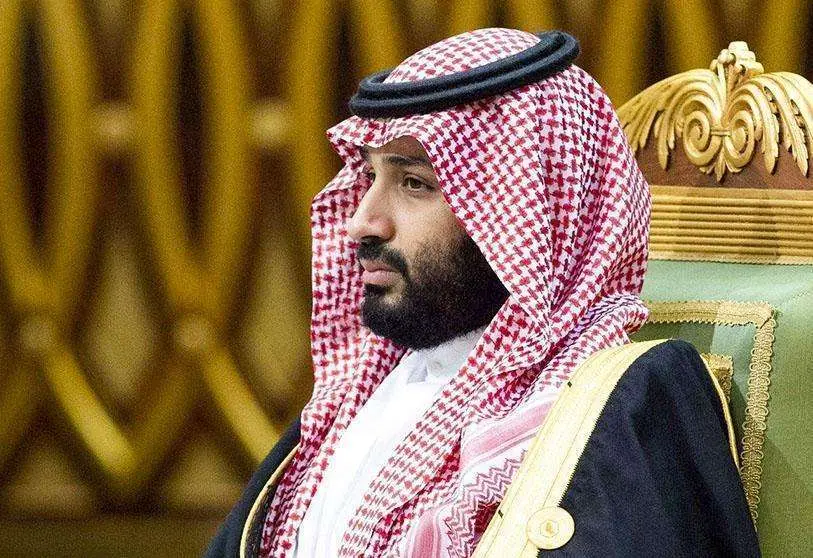Saudi Arabia joins the Central Asian market as a "dialogue partner"

The latest lurches of US foreign policy in the Middle East region are bringing the Arab world and Central Asia closer together than they already were. Relations between Washington and Riyadh are not in good health and China, aware of this, has reached out to the Saudi kingdom to strengthen the union of the Gulf countries with the Central Asian region. Of all the members of the Shanghai Cooperation Organisation - Russia, China, India, Pakistan, Kazakhstan and other former Soviet republics - Riyadh, in a show of interest and support for the common cause of the Shanghai Cooperation Organisation, will proceed to improve relations with Iran, its biggest rival in the region and the region's second largest economic giant.
Sources tell Reuters that the Foreign Ministers of Tehran and Riyadh will meet before the end of the holy month of Ramadan in order to re-establish relations with the aim of consolidating one of the most important economic partnerships in the hydrocarbon industry. According to the Saudi Press Agency (SPA), the announcement of the Arab kingdom's entry as a "dialogue partner" in the Shanghai Organisation was made by the Council of Ministers, chaired by Crown Prince Mohammed bin Salman bin Abdulaziz, days after a telephone call with Chinese President Xi Jinping. This decision, taken at a time when Saudi relations with North America are at a standstill, is a blow to the Asian economy's desire to influence decisions in the Gulf.

The Organisation, which originated at the beginning of the 21st century in 2001, was born as an economic, political and security grouping for Central Asian members "in the face of Western institutions" in a clear statement of intent to NATO's expansionist pretensions, which would ultimately seek to influence the governments of many of the Partnership's member countries. NATO was founded with the aim of achieving a series of objectives that focus on fostering policies of mutual trust and good neighbourliness among member states, combating terrorism, strengthening security, fighting crime and drug trafficking, and confronting separatist movements and religious or ethnic extremism.
According to Reuters, Saudi Arabia's entry as a dialogue partner would be the first step towards full membership in the long term. They add that the first talks on Riyadh joining as a new member took place during an official visit by Xi Jinping last year. In parallel, already in September 2022 during the annual meeting of the Shanghai Cooperation, in the midst of the crisis over the intention to reduce the production of barrels of crude oil by OPEC+ countries, Russian President Vladimir Putin, in his speech, "welcomed the accession" of Egypt, Qatar and Saudi Arabia.

It is no coincidence that this information is published in an economic and political context in which the economies of both countries - China and Saudi Arabia - have common interests in the short and long term. For Beijing, the political and social stability of its allies and joint members of the Organisation is one of the cornerstones of Chinese foreign policy. While Saudi Arabia's economy has one of the fastest growing economies in the world, China's concern is more focused on its relations with Iran, which China considers a key partner in the Gulf region.
Among Saudi Arabia's attractions is oil. However, like Iran, Saudi oil is one of the engines of the Kingdom's economy. China, which is aware of this, before initiating talks with Saudi Arabia, sought to please the Gulf country by the end of 2022 with an economic move with state-owned oil giant Saudi Aramco that could cost a record $12.2 billion, according to the Chinese group, Panjin Xinxin.

As reported by the Saudi agency SPA, relations between Iran and Saudi Arabia are not the best, but the intervention of President Xi Jinping has created "bridges of understanding" between the two countries, which have generated optimism within the Organisation, in the governments of the member countries, and most importantly, in Saudi Arabia and Iran. As a result, both countries have reconsidered reopening their embassies as a sign of improved relations. Similarly, the Chinese press reported on the agreement, emphasising two key points: the pursuit of peace in the region, including plans to end terrorism; and joining the region's development, treating this as China's support for the Gulf countries' agendas, such as Saudi Arabia's Vision 2030.
The growth of the Eastern and Gulf economies so far this century is one of the most remarkable and extraordinary achievements humanity has witnessed. Forty-five years ago, the Asian continent and the Gulf region was an inhospitable area, lacking opportunities to grow in a totally Westernised world.
Today, the Asian and Middle Eastern countries that are part of the Shanghai Cooperation make up about half of the world's population and have an economic power of more than $20 trillion. They also have a large share of the world's oil production, with more than three quarters of the world's oil reserves, and world reference markets such as Dubai, Beijing, Shanghai and New Delhi.
Americas Coordinator: José Antonio Sierra.








